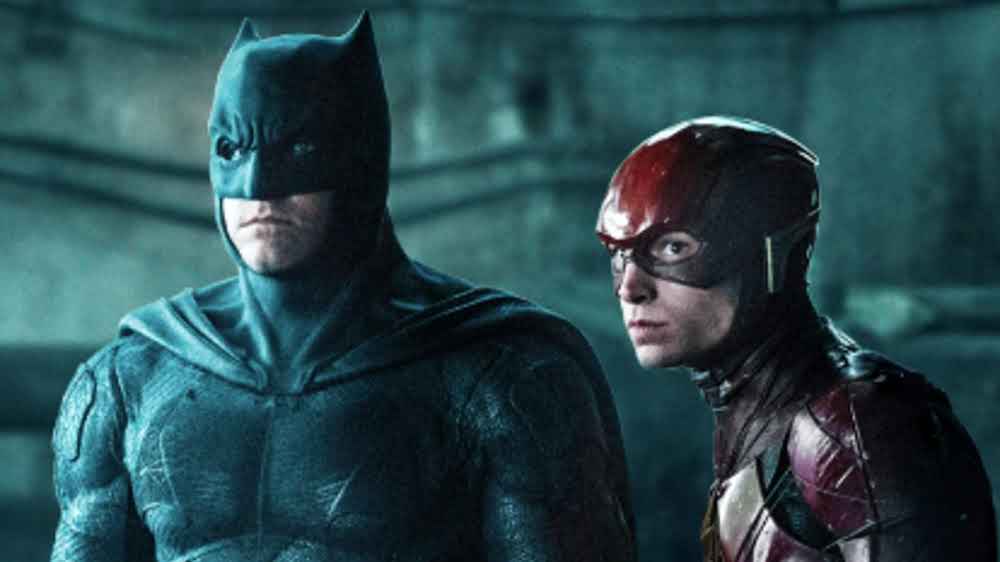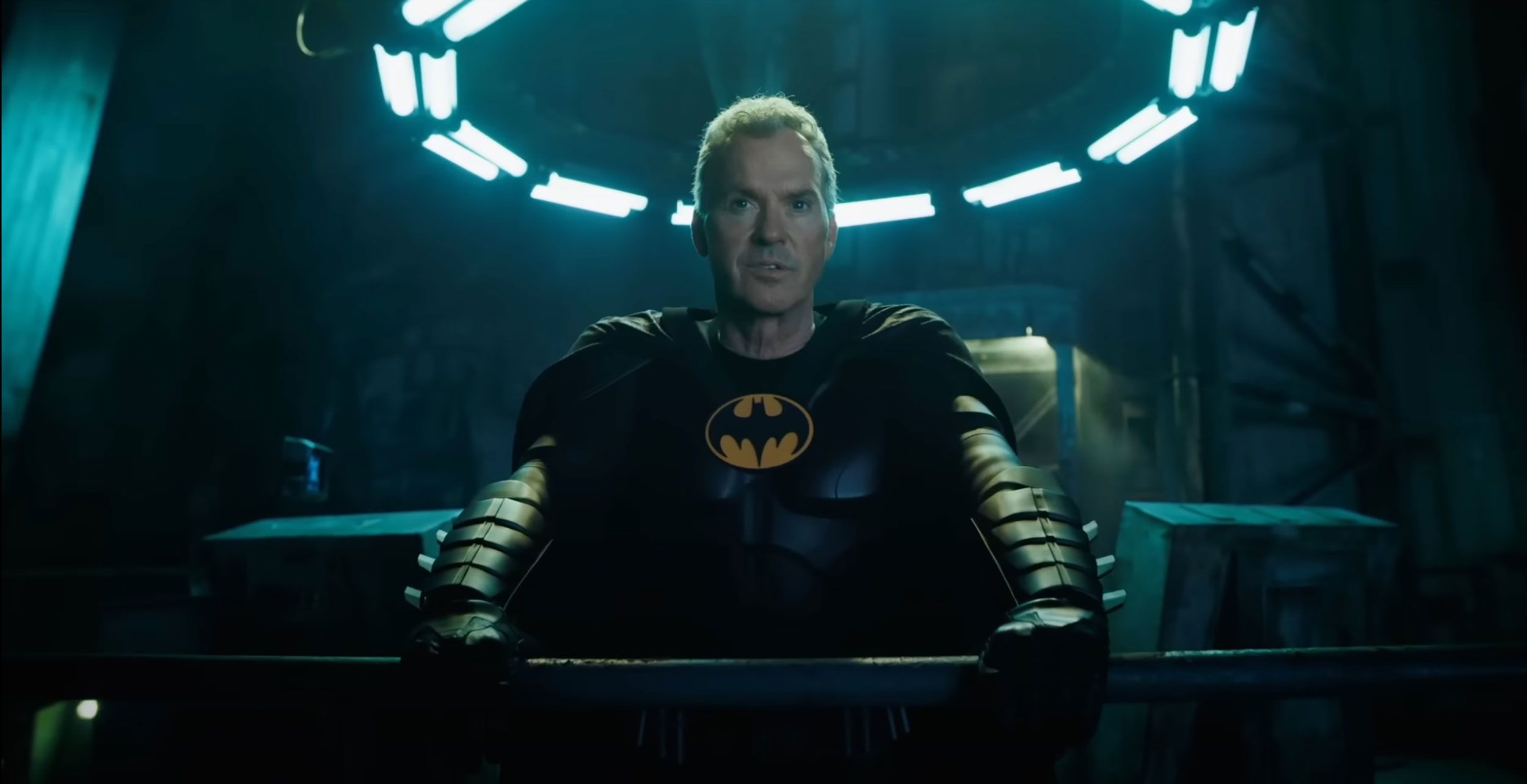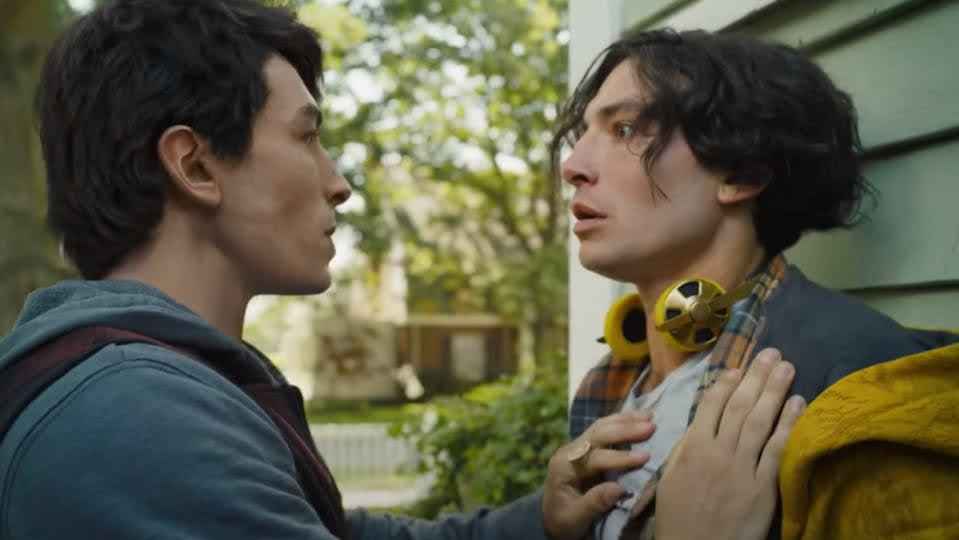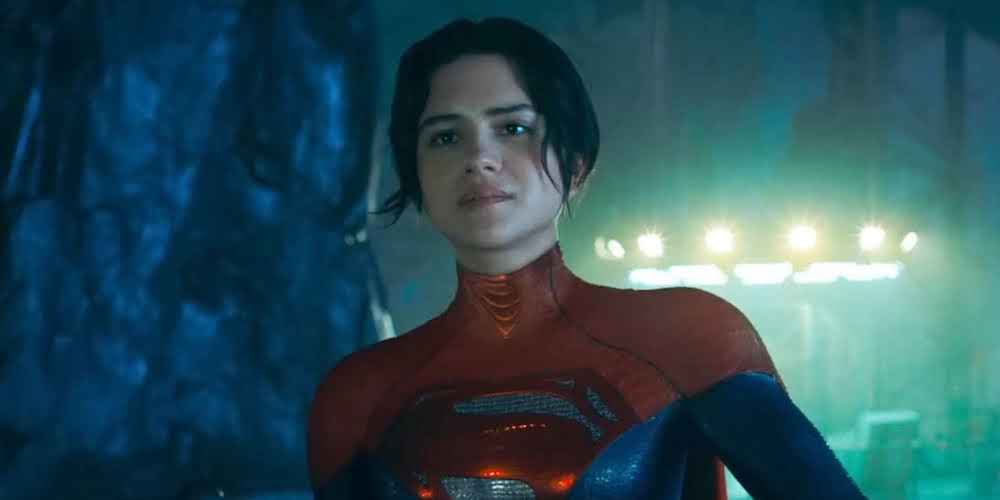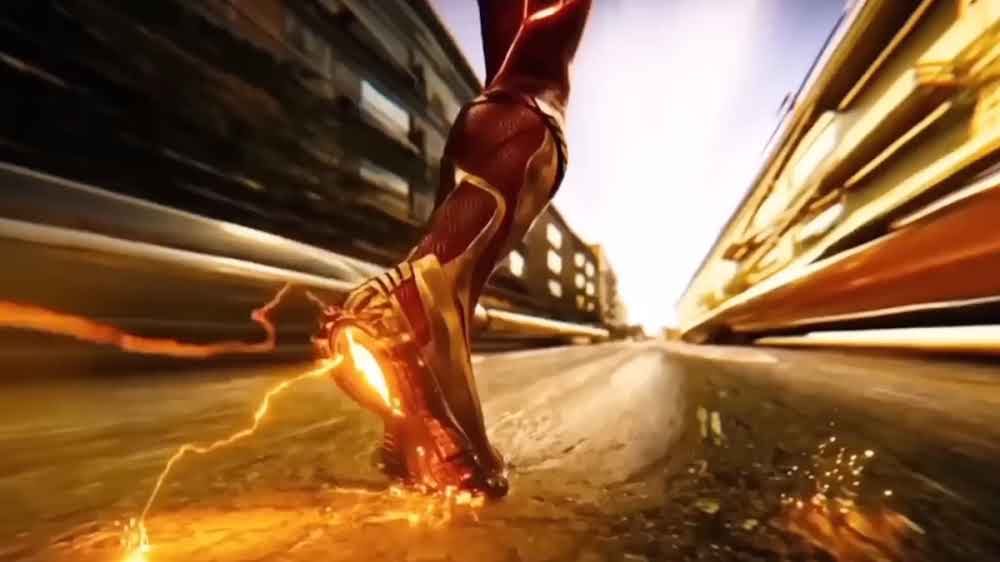Major comic book-based studio engines sometimes find their groove in their peripheral heroes. Marvel’s ascendancy was based primarily on that. Yeah they had an Incredible Hulk movie early on, but that wasn’t the thing that sent them into the stratosphere. They did so on the wings of your Iron Men, your Thors, your Ant-Men – characters you knew about, but maybe you weren’t familiar with every in and out of their origin stories. It’s created a 21st century empire that no other competitors can match.
DC is the one continually trying to match it, and continually failing. The company has far bigger historical name recognition in its stable of heroes, but recent DC Extended Universe movies about Superman and Batman have generally failed to register with critics and fans, with one Wonder Woman movie providing the exception but then the second one returning DC to its perennial doldrums. A third one was scrapped.
The Flash wouldn’t have seemed like the movie to save DC from itself, as this character has already appeared on screen in the derided Justice League movie and star Ezra Miller has more personal problems than anyone this side of Shia LaBeouf. As it turns out, sticking with this movie despite Miller’s myriad legal troubles was the right move for DC, which they apparently did because they thought the movie was too good to abandon. Turns out they were right, so chalk up another one to the sidekick heroes. And if the movie also happens to feature possibly the most beloved Batman of all time, then so be it.
Indeed Michael Keaton does reprise the role he played in the two Tim Burton Batman movies, 1989’s Batman and 1992’s Batman Returns. Keaton himself returns after his major career revival that is now a decade old, and even if you rightfully abhor Miller, Keaton is there for more than nostalgia. Ben Affleck is also here as Batman; that’s the multiverse for you. And actually Miller is quite good too, if you can separate the art from the artist.
Barry Allen (Miller) is a struggling criminal forensics investigator by day, the Flash by – well, other times of the day. With other superheroes tied up at the start of this film, Barry uses his super speed to save countless lives in the collapse of a hospital into an opening sinkhole. See, Barry is so fast that he can slow down time to the extent that ten minutes of his time might be just five seconds to everyone else. That really helps when potential victims are already mid-air outside the slumping skyscraper.
Of greater personal concern to Barry is the upcoming appeal of the criminal conviction of his father (Ron Livingston), who was wrongly accused of murdering his mother (Maribel Verdu) some ten years earlier. In a rage of sorrow after revisiting that time in his mind, Barry runs so fast that he exceeds the speed of light, inadvertently traveling in time backwards to earlier that day. Realising the potential of this ability, he believes he can go back further to make one small change. Affleck’s Bruce Wayne warns him not to do any more, or really even to do that. But Barry can’t imagine that there could be any negative consequences to placing an extra can of tomatoes in his mother’s shopping cart, as that was the errand that took his father out of the house and left his mother in the path of a burglar with a knife.
Well, it turns out not only is time not linear, but it doesn’t branch off in the way you might expect. The smallest of changes affects both the future and the past of that particular timeline. Now Barry finds himself trapped in a world where, yes, his mother is still alive, but so is an alternate version of Barry, grown up as a messy haired idiot without the scars of effectively losing both parents on the same day. This world doesn’t have a Superman, an Aquaman, a Cyborg or a Wonder Woman, and its version of Batman is a grizzled old man with a beard who has long since retired.
It’s kind of noticeable that those others aren’t around when a threat from outer space places the whole planet in harm’s way, and Barry – the self-proclaimed janitor of the Justice League – is the only one aware of it and able to stop it. At least he’s got two of him.
The two Barrys are this film’s masterstroke. We’ve seen multiple actors appearing in the same movie as the same superhero as recently as Spider-Man: No Way Home, and in fact, this tactic, even though it works, may be DC’s most shameless rip-off of Marvel yet. You wouldn’t trade the chance to see Keaton one more time, and there are other surprises in that regard as well.
But it’s Miller’s two different interpretations of Barry Allen, the one who’s world wise and the one who has no idea about any of this, that really make The Flash sing. Both versions of Miller appear on screen next to one another seamlessly, and Miller’s distinct takes on each version are both pretty hilarious. For all their personal faults, Miller is quite clearly still a charismatic movie star who can easily carry a movie like this.
The visual effect of the two Barrys is a very good one, but there are also some very bad visual effects in this movie. There’s a scene with babies in peril, and you have never seen worse digital babies in your life. The visuals in the film are more inconsistent than bad, though, as there are some extended action sequences that are thrillingly alive with the way the “camera” moves through the environment, capturing the combatants from upside down and every other angle imaginable. And in contrast to some other DC movies, the fight scenes are all conducted during the day, allowing them to have a crystal clarity and excellent spatial dynamics.
Andy Muschietti is the director here, and you might recognise him as the visionary – it may be too early to call him that – behind the two It movies. Those movies also had an inconsistent appearance, but they were extraordinarily ambitious and required a talented auteur to deliver them. Suffice it say that Muschietti delivers this equally ambitious project with similar aplomb.
What sets The Flash apart from DC’s most notorious failures, though, is its writing. Credit writers John Francis Daley, Jonathan Goldstein and Joby Harold – the first two directors in their own right, most recently of the Dungeons and Dragons movie – with allowing the humour to emerge naturally from their cleverly written scenarios. Justice League was sunk by the attempted course correction of having Joss Whedon come in to write lame quips, and that sort of sensibility has really been scrubbed from The Flash. If we’re trading one problematic Hollywood person for another, far better to live with what Miller brings to a movie like this than what Whedon would.
Most miraculously, The Flash comes along at a time of supreme multiverse overexposure and manages to make it feel sort of fresh again. Maybe that’s because the multiverse stuff isn’t the heart and soul of what The Flash is. It’s a relief that a multiverse setting can almost be an ancillary detail when a movie is conceived smartly and executed confidently.
The Flash is currently playing in cinemas.

